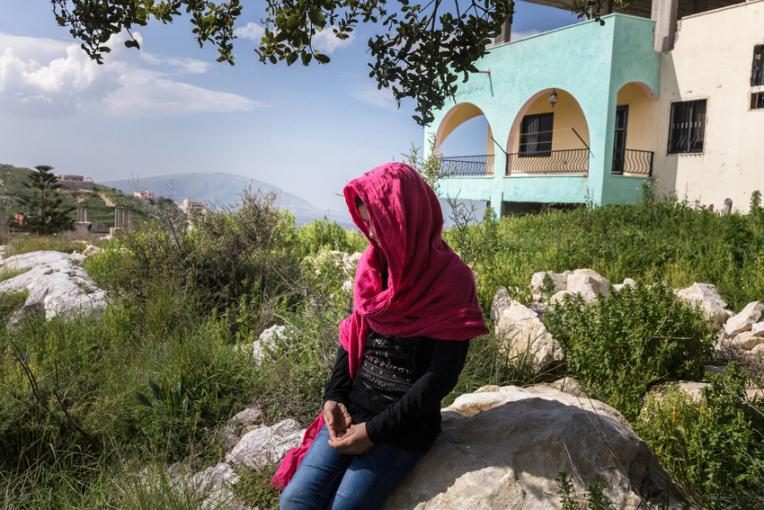10 DECEMBER 2020
Contradictory laws and policy loopholes are perpetuating lifelong discrimination against girls and women in the Middle East and North Africa (MENA) region, new analysis by Plan International has found.

More than ten years after the Arab Spring, a report focussing on five countries, Jordan, Syria, Lebanon, Sudan and Egypt, has found that despite significant progress across the region as a whole, the context for women and girls remains ‘precarious’ and guaranteeing equality before the law is a persistent challenge.
While national constitutions provide for equality of all citizens, in four of these countries, legal loopholes are impeding young women and adolescent girls from fully enjoying their rights. This includes laws exonerating perpetrators of sexual violence and ‘honour killings’ from punishment.
Legal loopholes
Although Egypt, Jordan, Sudan and Syria all define the legal age for marriage as 18, this is effectively nullified by additional laws allowing children to marry if it is judged as being in their best interest, while in Lebanon there is no minimum age.
According to the report, titled ‘The Protection of Young Women and Girls in the Middle East and Northern Africa’ the region ranks lowest on the Global Gender Index, scoring minimally on fundamental indicators such as health, education, economic and political participation.
Gender-based violence is the most common violation of rights, with one in three women in MENA having experienced or being at risk of experiencing physical or sexual abuse in their lifetime.
Violence increased during lockdown measures
Previous research by Plan International, a leading girls’ rights organisation, from April 2020 found that violence against girls and young women in Jordan has increased since the start of the strict lockdown measures to contain COVID-19.
All five countries were found to have legislation reinforcing gender-based violence, for example, by giving a woman or girls’ testimony less consideration than that of a man’s in legal proceedings, and laws which do not prohibit marital rape.
Women do not enjoy the same rights as men in the Middle East and North Africa
Hiba Alhejazi, Advocacy & Influencing Manager for Plan International Jordan said “Women do not enjoy the same rights as men in the Middle East and North Africa. In Jordan for example, Article Six of the constitution states that all Jordanians are equal yet women do not have the right to provide their children with citizenship status like men do.”
“In Syria, the law allows a rapist to marry a victim and escape under its penal code, whereas in Lebanon, there is no clear legal definition of sexual harassment.”
Leila, 39, from Syria, fled to Lebanon eight years ago with her husband and two children and filed for divorce shortly after her arrival.
“Being a divorced woman, I encounter a lot of harassment and bullying incidents,” she says. “I am not afraid for myself, I am afraid that I will not be able to protect my children especially my teenage daughter, who wants to live her life, but I am afraid for her future due to traditions and laws that hinder women and girls from reaching their full potential.”
Conservative political regimes
Conservative political regimes and regional conflict were also found to be obstacles to enhancing legal and policy measures to protect women and girls in the region.
This is despite some significant strides towards gender equality, including the adoption in 2015 of a national strategy to combat violence against women in Egypt, and the ratification of a law criminalising female genital mutilation by Sudan’s new government in July 2020.
“It is critical that the gaps and loopholes we have identified are addressed, including agreed definitions of what constitutes gender-based violence, sexual harassment and rape. There is also a need to collect better data, in order to improve gender-based violence services across the region and ensure they are survivor sensitive,” Alhejazi continues.
“More needs to be done and we hope this report will begin a regional conversation towards advocating for the rights of women and girls.”


